Latest News
Hispanic Heritage Month
September 13, 2012 by ramona
Filed under Articles, Latest News
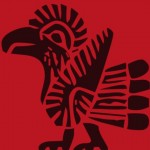 September 15 marks the start of Hispanic Heritage Month. A month long celebration of Hispanic culture that recognizes the role Hispanic Americans played in the forming of North America.
September 15 marks the start of Hispanic Heritage Month. A month long celebration of Hispanic culture that recognizes the role Hispanic Americans played in the forming of North America.
From Columbus’s discovery of the “New World” under the patronage of Spanish monarchs to the earliest continuous North American settlement in St. Augustine, Florida. Hispanic people have played an important part in the shaping of a nation.
Hispanic Heritage Month began, as a week long celebration first made official by President Lyndon Johnson in 1968. In 1988, President Ronald Reagan expanded it to a month long salute beginning on 15 September and running through to 15 October.
Today, an estimated 14% of US citizens claim Hispanic roots. That adds up to approximately 42.7 million Americans with a heritage that can be traced back to Mexico, Spain, the Caribbean and both Central and South America.
For genealogy beginners with an interest in learning more about their Spanish American ancestry here are a few great places for you to begin climbing the branches of your family tree.
Spanish American Genealogical Association (SAGA)
Founded in April 1987, SAGA is a non-profit organization interested in collecting, researching, indexing and digitizing genealogical resources related to the earliest Spanish and Mexican settlers in Texas.
Hispanic Genealogy Facebook Page
A fantastic page where you can go to ask questions related to Hispanic genealogy.
FamilySearch.org
Family Search has a total of 174 collections related to Hispanic Genealogy including Catholic Church records, Census, Civil Registrations and Immigration, in addition to some very early birth, baptism, marriage and death records.
Celebrations
If you want to get in on some of the Hispanic Heritage events this month, visit the Library of Congress site where you can start your celebrations with Family Day: Central American Traditions at the American History Museum, Smithsonian Institution: which promises to be a day filled with music, dance and art.
While you are there spend a little time learning about the culture-hero and deity, Quetzalcoatl, Hispanic American war veterans and Hispanic genealogy. All part of this month’s special exhibits and collections.
Do Genealogy Specific Search Engines Simplify Your Family Tree Research?
September 11, 2012 by ramona
Filed under Articles, Genealogy Technology, Introduction to Genealogy, Latest News
Have you ever wished for a genealogy exclusive search engine that could: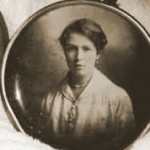
Organize and simplify your family tree research?
Cut out all of the garbage returns and zero in on your specific search criteria?
Do it FAST and FREE
A search engine like this is on the top of my family history wish list and while it seems that every other genealogy search engine I come across is making claims that their tools use the ultimate in “Intelligent Search” or “Smart Technology”: I have yet to find one that fulfills all promises made.
In reality, what I have found is that most sites that make these claims simply redirect you to the major known genealogy sites or query boards.
While Mocavo comes close and Google does an excellent job with the right search terms the best strategy is simply gather up your family tree templates and go straight to a reputable record source such as Family Search, Ancestry.com or the archive/repository for the area you are searching.
In fact, if your search is geography specific it may be more worth your time and money to join the family history society that covers your specific location.
Finding the all the time you want to spend researching your family tree can be hard enough without wasting it on useless searches that yield few results.
Free Online Genealogy Books
September 7, 2012 by ramona
Filed under Articles, Genealogy Technology, Introduction to Genealogy, Latest News
 Something that always gets me excited about genealogy is finding great free resources online, especially ones that are:
Something that always gets me excited about genealogy is finding great free resources online, especially ones that are:
1. Unique
2. Packed with family history information
3. Available on other sites for a fee
Recently I discovered one on Google Books that I thought might be just as exciting for others researching their family tree whether they are experienced genealogists or genealogy beginners.
A Genealogical and Heraldic History of the Commoners of Great Britain and Ireland
A Genealogical and Heraldic History of the Commoners of Great Britain and Ireland, written by John Burke is a four-volume book published in the mid 1800s that contains information on almost 400 families in the first volume alone. What makes the book unique is that it contains information on people who were either landowners or held rank…but were not among the titled gentry.
Family History Information
Within the biographies contained between the covers, you will find names, vital events, occupations and geographic information on these families as well as specifics on individual members.
To give you an at-a-glance idea of what you may find let us look at the Beckford family of Fonthill.
The entry begins by identifying one William Beckford esq. of Fonthill Abbey in the county of Wilts. Who married the daughter of the fourth Earl of Aboyne . In a short introduction to his biography we learn that the William was a member of parliament and inherited his estates from his father.
Below the biography is the Lineage section which starts off with the origin of the family and continues on with short history including the military history of several family members.
Far from a dry pedigree, this family record includes such tit-bits as: Mr. Beckford is descended (Paternally or maternally) from all the Barons of the Magna Carta and had among his ancestors another William who was twice Lord Mayor of London.
At the end of the book family tree fanatics will find an appendix that lists:
- Banneretts and Knights made after the battles of Stoke and Blackheath by King Henry VII
- Officers commanding the queens forces anno 1569
- Knights of the Royal Oak
Want More Great Family Tree Resources?
Some other great free genealogy books that can be found on Google Books include:
- The knightage of Great Britain and Ireland
- The Court Journal: Court Circular & Fashionable Gazette: Volume 7
- Burke’s Peerage, Baronetage & Knightage: Clan Chiefs, Scottish Feudal Barons, Volume 1
- A Genealogical and Heraldic History of the Colonial Gentry
- Complete peerage of England, Scotland, Ireland, Great Britain
- Burke’s Royal Families of the World: Africa & the Middle East
Medieval Scottish Roots
September 4, 2012 by ramona
Filed under Articles, Genealogy Research Resources, Latest News, Sharing Genealogy Information
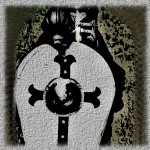 If you are ready to start digging for ancestors that go way-way back …all the way, back to medieval times on the British Isles.
If you are ready to start digging for ancestors that go way-way back …all the way, back to medieval times on the British Isles.
Here is a website that you should put at the top of your family history list.
People of Medieval Scotland is an amazing database containing 8600 records. This database consists of all known people of Scotland from 1093 to 1314 and it is the culmination of two projects funded by the Arts and Humanities Research Council.
The Projects
The Paradox of Medieval Scotland is a study of the social relationships before the wars of independence. This will be riveting for those who have traced their British ancestry back to Anglo-Norman origins. The information drawn from over 6000 charters provides biographical data for all known Scottish peoples between 1093 and 1286.
The Breaking of Britain is concerned with the period extending from Alexander II’s attempted revival to the abolition of cross border, land holding by Robert the Bruce.
The Database
The database as a whole is a collection of information on every known individual mentioned in documents relation to Scotland between the death of Malcolm III in 1093 to Robert the First’s parliament in Cambuskenneth in 1314. What makes this database so special is that it is based on the relationships between the people named in the documents.
The next feature that separates this database from so many others is the database tutorial, which makes navigating it easy…even for a genealogy beginner. Searching the database can be done using a broad base of criteria such as Institutions, factoids, people, sources, relationships, transactions and terms of tenure.
For example, a search for the surname Sinclair under the “Factoid” search returns a list of Sinclair’s by name ranging from 1093-1314. Clicking on one these will bring up a pop up box that gives you a short biography and an option to view the full record. Choosing to view the full record will move you to page with a total number of associated factoids such as:
Transaction factoids: Lists transactions such as gifts of land, general correspondence, oaths of fealty and much more
Relationship Factoids: Names relationships connected to the individual, for instance both familial and guardianships
Title Factoids: Lists all titles and offices held by the individual
Witness Factoids: Documents on which the individual is listed as a witness
Family Tree
After browsing through the available documents users also have the option of looking at the listed family tree for the individual. Under my Sinclair search, I found the family tree for the line on a tab at the top of the page. Clicking on this menu item the family tree listed three trees in which this individual could be found: Scottish Royal Family, Earl David descendants, English royal family and Manx royal family.
Although the database covers all territory, which was to become part of Scotland prior to the death of Alexander III, those looking for specific genealogy information on individuals from Orkney or Shetland will be disappointed if they try a geographic search, However if you know who your ancestors are from those areas there certainly is a great deal of information included.
The last two points that should convince you to put this site in your favorites is that the database is free and there is no need to register to use it.
Before you head off to visit this amazing website, be sure to download your free Family Tree Charts, available with your 30-day free trial membership to genealogybeginnner.com.
Volunteers Needed at FamilySearch
August 31, 2012 by ramona
Filed under Articles, Family Search The LDS, Latest News
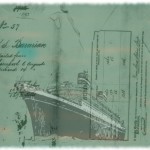 FamilySearch is in the news again with a new project that promises to be one of the most exciting yet for genealogy beginners.
FamilySearch is in the news again with a new project that promises to be one of the most exciting yet for genealogy beginners.
The new project focus is to index U.S. Immigration and Naturalization records as well as passenger lists, border crossing records and passports. The ultimate objective to indexing these records is to make them freely available for family tree enthusiasts looking for their immigrant ancestors.
The variety of information family history hunters can hope to discover from these records includes:
- Ancestor’s Names
- Names of Family or Friends they traveled with
- Place of birth
- Date of immigration
- Date and location of naturalization
- Port of origin
- Port of entry
- Name of ship
To reach this goal FamilySearch is once again inviting the genealogy community to join in and help with the indexing. You do not have to be a professional genealogist, in fact, all you need to do if you would like to become a volunteer on this project is register, sign in and download the indexing software.
To find out more details visit https://www.familysearch.org/us-immigration-naturalization/?icid=fsHomeUSImmNatTxt
Family Search adds even more New Records for 2012
August 26, 2012 by ramona
Filed under Articles, Latest News
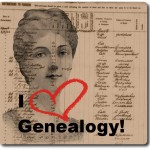 With the 1940s, Census indexing project finished you might think the team at FamilySearch.org would want to take a little rest. They certainly deserve one!
With the 1940s, Census indexing project finished you might think the team at FamilySearch.org would want to take a little rest. They certainly deserve one!
Instead, they are still busy adding new records and updates.
For the month of August 2012, they have added 50 sets of new records and updates covering North America, South America, Great Britain, Europe and more.
Among the new additions are court papers, cemetery transcriptions, obituaries, immigration information, probate records, passenger lists, mortality schedules, civil war records, census and civil registrations as well as marriage, birth, baptism and death records.
Here is a list of new records thus far this month:
New Additions and Updates at Family Search: August 2012 |
Images Included |
Date Added |
| Alabama, Jefferson County Circuit Court Papers, 1870-1916 |
YES |
14 Aug 2012 |
| Alabama, Sumter County Circuit Court Files, 1840-1950 |
YES |
20 Aug 2012 |
| California, San Mateo County Records, 1855-1991 |
YES |
14 Aug 2012 |
| Idaho, Obituaries, 2007 |
YES |
14 Aug 2012 |
| Illinois, Cemetery Transcriptions, 1853-2009 |
YES |
14 Aug 2012 |
| Illinois, County Naturalization Records, 1800-1962 |
YES |
7 Aug 2012 |
| Indiana, Marriages, 1811-1959 |
NO |
16 Aug 2012 |
| Kentucky, Probate Records, 1792-1977 |
NO |
17 Aug 2012 |
| Maine, County Naturalization Records, 1800-1990 |
YES |
10 Aug 2012 |
| Maryland, Probate Estate and Guardianship Files, 1796-1940 |
NO |
15 Aug 2012 |
| Montana, Yellowstone County Records, 1881-2011 | 16 Aug 2012 | |
| New Hampshire, County Naturalization Records, 1771-2001 |
YES |
15 Aug 2012 |
| New Jersey, Probate Records, 1678-1980 |
YES |
15 Aug 2012 |
| New York, New York Passenger and Crew Lists, 1925-1942 |
YES |
22 Aug 2012 |
| Ohio, Births and Christenings, 1821-1962 |
NO |
24 Aug 2012 |
| Ohio, County Births, 1856-1909 |
NO |
24 Aug 2012 |
| Ohio, County Marriages, 1789-1994 |
NO |
16 Aug 2012 |
| Ohio, Jefferson County Court Records, 1797-1940 |
YES |
23 Aug 2012 |
| North Carolina, Estate Files, 1663-1979 |
NO |
2 Aug 2012 |
| Texas, Deaths (New Index, New Images), 1890-1976 |
NO |
11 Aug 2012 |
| Texas, Deaths, 1977-1986 |
NO |
21 Aug 2012 |
| United States Census (Mortality Schedule), 1850 |
NO |
23 Aug 2012 |
| United States Census, 1850 |
NO |
23 Aug 2012 |
| United States Census, 1940 |
NO |
18 Aug 2012 |
| United States Social Security Death Index |
NO |
17 Aug 2012 |
| United States, Civil War Widows and Other Dependents Pension Files |
NO |
15 Aug 2012 |
| United States, World War One Draft Registration Cards, 1917-1918 |
NO |
8 Aug 2012 |
| Quebec Notarial Records, 1800-1900 |
YES |
22 Aug 2012 |
South America |
||
| Chile, Santiago, Cementerio General, 1821-2011 |
YES |
15 Aug 2012 |
| Mexico, Baptisms, 1560-1950 |
NO |
24 Aug 2012 |
| Mexico, Marriages, 1570-1950 |
NO |
24 Aug 2012 |
| Peru, Amazonas, Civil Registration, 1939-1995 |
YES |
20 Aug 2012 |
| Peru, La Libertad, Civil Registration, 1903-1998 |
YES |
15 Aug 2012 |
| Peru, Lima, Civil Registration, 1874-1996 |
NO |
21 Aug 2012 |
| Philippines, Civil Registration (Archives Division), 1902-1945 |
YES |
14 Aug 2012 |
| Portugal, Braga, Catholic Church Records, 1530-1911 |
YES |
21 Aug 2012 |
| Portugal, Castelo Branco, Catholic Church Records, 1714-1911 |
YES |
15 Aug 2012 |
| Portugal, Viseu, Catholic Church Records, 1523-1989 |
YES |
21 Aug 2012 |
Eastern Europe |
||
| Czech Republic, Land Records, 1450-1889 |
YES |
15 Aug 2012 |
| Hungary, Civil Registration, 1895-1980 |
YES |
9 Aug 2012 |
| Poland, Roman Catholic Church Books, 1600-1950 |
NO |
24 Aug 2012 |
Western Europe |
||
| Italy, Torino, Civil Registration (State Archive), 1802-1813 |
YES |
6 Aug 2012 |
| Italy, Vicenza, Casoni, Parocchia di San Rocco, Catholic Church Records, 1597-1941 |
YES |
17 Aug 2012 |
| Spain, Consular Records of Emigrants, 1808-1960 |
YES |
6 Aug 2012 |
| Spain, Cádiz, Civil Registration Records, 1870-1960 |
YES |
20 Aug 2012 |
| Spain, Province of Barcelona, Municipal Records, 1583-1902 |
YES |
22 Aug 2012 |
| Sweden, Södermanland Church Records, 1604-1900; index 1640-1860 |
NO |
2 Aug 2012 |
Great Britain |
||
| England, Northumberland, Miscellaneous Records,1570-2005 |
YES |
15 Aug 2012 |
| Great Britain, Births and Baptisms, 1571-1977 |
NO |
21 Aug 2012 |
Australia & New Zealand |
||
| New Zealand, Probate Records, 1878-1960 |
YES |
14 Aug 2012 |
Before you dive into all of these new family history records make sure you are prepared to record all of the new information. On your free Research Tracking Forms and Family Tree Charts: available with your 30-Day FREE TRIAL MEMBERSHIP to Genealogy Beginner.
Finding Your Ancestors in Trades Union Records
August 23, 2012 by ramona
Filed under Articles, Genealogy Occupational Records, Genealogy Records 101, Latest News
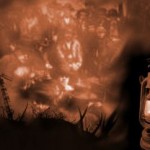 One of the very first things you learn as a genealogy beginner is to look in birth, marriage, death and census records for clues to uncovering your ancestral past. Then you learn about land records, sasines and other records associated with genealogy.
One of the very first things you learn as a genealogy beginner is to look in birth, marriage, death and census records for clues to uncovering your ancestral past. Then you learn about land records, sasines and other records associated with genealogy.
One often overlooked source of information for your family tree are trades union records.
The trade your ancestor worked in may hold valuable information. For example, the record of a tradesman can help you find an ancestor who has disappeared from the record or help you fill in the blanks of, where, when and why they changed locations between census. Quite often trades ran in families and you may even find generations of records if you are lucky.
For family history hunters with ancestors from the UK one record source you may want to track down is The Modern Records Centre. This unique resource is not genealogy specific nevertheless; they do have a number of collections that are genealogy gold.
The Modern Records Centre collection includes information on UK trade union employers that work as guide to help find specific records for individuals.
Some of the trades they cover include:
Blacksmiths, Forge & Smithy Workers
The Scottish United Operative Blacksmiths’ Protective and Friendly Society was recognized on 24 August 1857: records held in this collection are general registration books, 1857-1924. These records hold information on individuals however to find an individual you will need either their membership number or the year they joined the union. Another great resource in this collection is the monthly, quarterly and annual/financial reports (1858-1961). This set of records includes lists of deceased members and their spouses.
Joiners
The Amalgamated Society of Carpenters and Joiners/Amalgamated Society of Woodworkers hold membership records in three series. To find information on individual members you will need to know the branch to which your ancestor belonged.
· What the collection contains and what you can hope to find:
· Admission books (1895-1931): Your ancestors name, age when admitted, number of years in the trade, the date he was admitted, his marital status, if he recieved funeral benefits, excluded members and if he was transferred between branches.
· Registration books (1901-1921): Some of the information included are name, age when admitted, date admitted, marital status, date of marriage and name of branch, any benefits received and date of death or exclusion from the union.
· Reference books (1901-1921): The reference books contain lists of members in 1901, 1911 and 1921 that had transferred in another place.
· Annual reports (1920-1971): The most interesting thing about the Annual reports is that they contain obituaries of several members.
Railwaymen
There are several unions for railwaymen with records dating from so it will be very helpful to know exactly which union your ancestor was a member of. In spite of this, the collection has some of the richest genealogical holdings.
Annual reports of the Orphans Fund (1889, 1893-1912):
These records hold the details of payments made to the children of deceased members. To research the collection you will need to know the year(s) benefit were granted.
Record of accidents, inquests, Board of Trade enquiries, and legal cases (1901-1907):
This collection is indexed by branch and arranged in chronological order. It contains information on accidents and inquests and can tell you the date ,place and nature of an accident along with whether or not any compensation was paid or the outcome of an inquest. Researchers will need to know an approximate date of accident as well as the member’s branch.
The Modern Records Centre also holds union records for Boilermakers, Bookbinders, Bricklayers, Gilders, Ironfounders, Papermakers, Printing Workers, Quarrymen, Seamen, Shipwrights & Shipbuilders, Stonemasons and Telegraphists among many others.
Before you head off to research your ancestors trades take advantage of genealogybeginner.com’s 30-day free trial membership and download your Family Tree Charts and Research Tracking Forms today.
A Family History of Chivalry
August 20, 2012 by ramona
Filed under Articles, Family History, Latest News
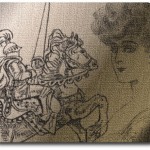 One of the most enjoyable things about researching your family history is learning about some lesser-known historical facts. This can be even more exciting when you discover that your ancestors had a part to play.
One of the most enjoyable things about researching your family history is learning about some lesser-known historical facts. This can be even more exciting when you discover that your ancestors had a part to play.
For example, it can be a thrilling moment when you discover that there was a knight in your family tree.
It can be a bit of a surprise if you find out that the knight was a woman.
During the middle ages, there were several orders of knighthood for women such as:
The Order of the Hatchet
Founded by the Count of Barcellona in 1149, The Order of the Hatchet honored the women who fought against the Moors in defense of the town of Tortosa. The Order granted the lady knights precedence over men at public assembly as well as an exemption from taxes.
The Order of the Glorious Saint Mary
Loderigo d’Andalo, an Italian nobleman from the town of Bologna founded The Order of the Glorious Saint Mary in 1233. Later approved by Pope Alexander IV in 1261, this was the first of the religious orders of knighthood granted to women.
The Order of the Garter
The Order of the Garter was granted to 68 women between the years 1358 and 1488. Many of the women appointed to this order were wives of knights of the order or those of noble blood: although, there were members who were neither. A symbol of the Knights of the Garter is a garter worn upon the left arm; many such are seen on the headstones of those inducted into the order.
The term for a woman who has been knighted is “Dame”.
If you find this title associated with one of your ancestors it will be because she belonged to an order of chivalry. Often these titles are only held for life and are not hereditary.
To learn more about medieval genealogy visit The Foundation for Medieval Genealogy but first remember to download your Family Tree Chart available with your 30-day free trial to Genealogy Beginner
New Family Tree Site Offers a Great Deal
August 19, 2012 by ramona
Filed under Articles, General Tips, Latest News
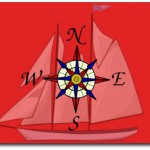 Genealogy beginners in the US will be happy to learn that findmypast has launched a new search site tailored to family history hunters across the pond.
Genealogy beginners in the US will be happy to learn that findmypast has launched a new search site tailored to family history hunters across the pond.
The new site titled findmypast.com is geared towards helping the descendants of UK immigrants conduct family tree research with records specifically tailored for US Family History researchers.
The records can be searched by:
- Census, Land and Substitutes
- Churches and Religion
- Education and work
- Immigration and Travel
- Institutes and Organizations
- Military Service and Conflict
- Newspapers, Directories and Social History
- Vital Records (Birth, Marriage, Death)
In addition to the US records, subscribers will have access to records from the UK, Ireland, Australia and New Zealand.
The best part is that right now findmypast.com is offering a limited time 76% Pioneer discount!
Is There Gold in your Family Tree?
August 14, 2012 by ramona
Filed under Articles, Genealogy Research Resources, Latest News, Sharing Genealogy Information
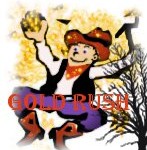 One of the most enjoyable things about climbing your family tree is discovering ancestors who were involved in one of histories great events.
One of the most enjoyable things about climbing your family tree is discovering ancestors who were involved in one of histories great events.
August 16th marks the anniversary of the Klondike Gold Rush and any genealogy beginner that descends from one of the miners or “Stampeders” who set off to strike it rich in 1897 needs to know about Yukon GenWeb.
The Yukon GenWeb is a compilation of free genealogy resources loaded with links and information to all things related to the “last great gold rush”. Their resources include a listing of related Archives & Libraries, Books and Publications, Yukon Cemeteries, Census Returns, Church Records and Registers.
Some of the highlights of their resources include:
- A collection of Directory Records with a link to Ferguson’s 1901 Alaska/Yukon Directory, which lists over 24,200 gold rush participants
- Pioneer Biographies in their Family Records collection
- Relevant First Nations information
- Immigration records including Border Entry, 1908-1918: List of Ports, Dates and Microfilm Reel Numbers
- Passenger Lists, 1865-1922
- Land Titles Records
- Military Records
Before you head off to search for your Gold Rush ancestors make sure you sign up for a 30-day free trial membership to Genealogy Beginner and download your complimentary family tree charts and research tracking forms.
You are going to need them when you start exploring the Pan for Gold Database, North West Mounted Police (NWMP) – Personnel Records, 1873-1904, Manager & Proprietors of Historic Yukon & Alaska Roadhouses, Hotels and Saloons plus so much more!
